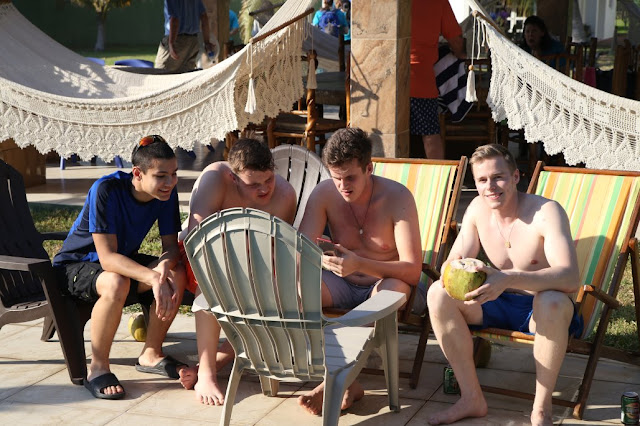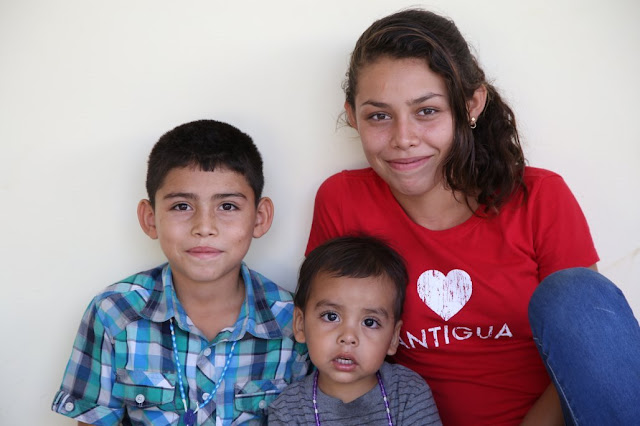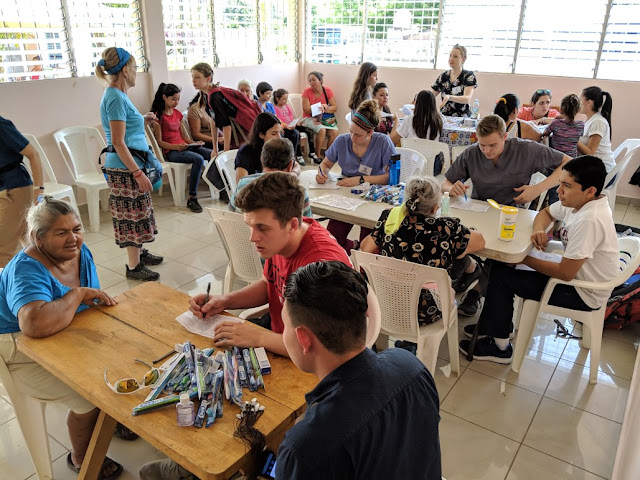Water Filters
Our mission trip is run by Helping Hands Medical Missions in Texas. The primary mission is deliver health care in a manner consistent with the gospels and Catholic social teaching.
Every day we are there, we set up a temporary clinic, host around 300 patients, then tear it all down in the evening. About half of the missionaries are medical professionals, and the rest of us help with all the clinic logistics.
A few years back, our mission group realized that, in addition to reactive healthcare, there was an urgent need for clean drinking water among the patients we were seeing. Some people we spoke to were traveling three miles or more each morning to collect water from rivers or streams, then carrying it all the way back home - often across mountainous terrain. Since El Salvador is so small and densely populated, the surface water is terribly polluted with chemicals and infectious materials.
Even in cases where there is a municipal well, the well is often turned on for only a few hours each week, leaving people to collect all their water for the week and store it in plastic drums at home, as pictured here. The well water is often no more sanitary than the surface water, and storing it in these drums is obviously not hygienic.
As result, the mission team located robust, inexpensive water filters manufactured in neighboring Guatemala that could be purchased in bulk and shipped across the border. As described on the EcoFiltro product page, the filters are gravity fed, and clean the water via a dense fired-clay filter medium - cross section shown here:
The filters require a minimal amount of maintenance, but even so, a local volunteer corps based at the parish church is trained in use and maintenance of filters. They are then distributed based on need and strategic location. Each clay element lasts for two years before it needs to be replaced.
Here's a photo from last year, showing a representative from EcoFiltro training the local volunteers.
The difference that clean water makes cannot be overstated. Clearly, we've had experiences with this in the U.S. in the past few years with the hurricanes and various tainted municipal water systems. One of the main difference between our situations and that of the people in El Salvador is that ours have largely been temporary emergencies. In the Salvadoran case, without outside intervention, they may very well be stuck with the tainted water source permanently.
Each water filter costs the mission group $50. This is a nice, bite-sized, low-cost way to provide an incredibly powerful benefit for our friends to the South. Over the few years we've been doing this, we've been able to provide filters for hundreds of families, and we are purchasing even more this year. So, if you're thinking about helping out financially, you can see that even a small donation would make a big difference here.
If you've got a few bucks to spare, feel free to head on over to the GoFundMe page (https://www.gofundme.com/el-salvador-medical-mission-trip-2019) to help out.
Thanks for your support and your prayers!
Every day we are there, we set up a temporary clinic, host around 300 patients, then tear it all down in the evening. About half of the missionaries are medical professionals, and the rest of us help with all the clinic logistics.
A few years back, our mission group realized that, in addition to reactive healthcare, there was an urgent need for clean drinking water among the patients we were seeing. Some people we spoke to were traveling three miles or more each morning to collect water from rivers or streams, then carrying it all the way back home - often across mountainous terrain. Since El Salvador is so small and densely populated, the surface water is terribly polluted with chemicals and infectious materials.
Even in cases where there is a municipal well, the well is often turned on for only a few hours each week, leaving people to collect all their water for the week and store it in plastic drums at home, as pictured here. The well water is often no more sanitary than the surface water, and storing it in these drums is obviously not hygienic.
As result, the mission team located robust, inexpensive water filters manufactured in neighboring Guatemala that could be purchased in bulk and shipped across the border. As described on the EcoFiltro product page, the filters are gravity fed, and clean the water via a dense fired-clay filter medium - cross section shown here:
The filters require a minimal amount of maintenance, but even so, a local volunteer corps based at the parish church is trained in use and maintenance of filters. They are then distributed based on need and strategic location. Each clay element lasts for two years before it needs to be replaced.
Here's a photo from last year, showing a representative from EcoFiltro training the local volunteers.
The difference that clean water makes cannot be overstated. Clearly, we've had experiences with this in the U.S. in the past few years with the hurricanes and various tainted municipal water systems. One of the main difference between our situations and that of the people in El Salvador is that ours have largely been temporary emergencies. In the Salvadoran case, without outside intervention, they may very well be stuck with the tainted water source permanently.
Each water filter costs the mission group $50. This is a nice, bite-sized, low-cost way to provide an incredibly powerful benefit for our friends to the South. Over the few years we've been doing this, we've been able to provide filters for hundreds of families, and we are purchasing even more this year. So, if you're thinking about helping out financially, you can see that even a small donation would make a big difference here.
If you've got a few bucks to spare, feel free to head on over to the GoFundMe page (https://www.gofundme.com/el-salvador-medical-mission-trip-2019) to help out.
Thanks for your support and your prayers!






Comments
Post a Comment